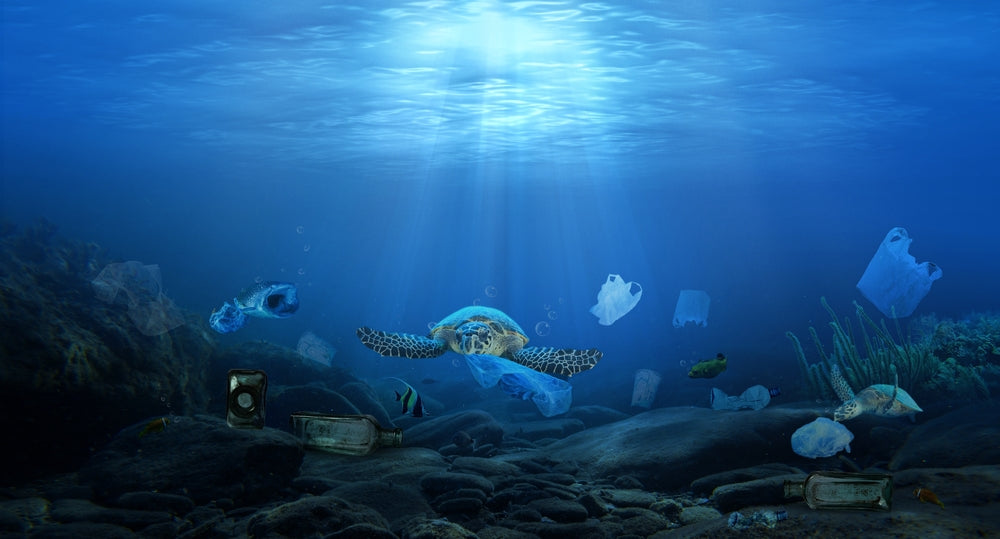The Growing Threat of Plastic Pollution and How You Can Make a Difference
Posted by Securr Blogger on
Plastic pollution has evolved into a pressing global issue, with dire consequences looming on the horizon. Plastics, notorious for their non-biodegradable nature, relentlessly accumulate in our landfills and oceans. Shockingly, projections by the World Economic Forum and Ellen MacArthur Foundation suggest that by 2050, the volume of plastic in our oceans may surpass that of fish. But just how grave are the dangers posed by plastic, and what can you do to combat this burgeoning crisis?
Unveiling the Plastic Predicament
Plastics have unleashed a crisis in our oceans, epitomized by the disquieting spectacle of the Great Pacific Garbage Patch. The discovery of this gargantuan garbage cluster in 2003, stumbled upon by Captain Charles Moore during a Pacific voyage, serves as an ominous testament to the extent of the problem. Stretching across an expanse estimated to be three times the size of France, it took Moore and his crew an entire week to traverse this plastic-laden expanse. At the patch's surface, an alarming ratio of 180:1 was calculated, with plastic outweighing living organisms. Regrettably, the Great Pacific Garbage Patch is not a solitary sentinel of despair; similar patches have manifested in the North Pacific, North Atlantic, South Pacific, South Atlantic, and Indian Oceans.
The repercussions of the Great Pacific Garbage Patch extend beyond its visual eyesore and navigational hurdle. Research spearheaded by The Ocean Cleanup has illuminated the disconcerting fact that 84 percent of the plastic found in the patch carries hazardous chemical pollutants. This exacerbates ocean acidification, a phenomenon whose full ramifications are still shrouded in mystery.
Plastics also pose a lethal threat to wildlife as creatures become ensnared in plastic debris or ingest it. Microplastics, including seemingly innocuous items like glitter, are devoured by krill, a pivotal component of the diet for nearly half of the ocean's seals, squids, penguins, fish, and whales. Over time, these microplastics insidiously infiltrate the food chain, eventually reaching humans.
Taking Action to Reduce Plastic Waste
Thankfully, there are concrete steps that individuals can take to contribute to the reduction of plastic waste. First and foremost, you can curb your plastic consumption by adopting practices such as using reusable water bottles and favoring products with minimal packaging. You can also play a vital role in the battle against plastic pollution by volunteering at local beach and waterway cleanup initiatives and lending support to organizations committed to safeguarding our environment. The #2minutebeachcleanup project champions a simple yet impactful approach: devote just two minutes of your beach visit to collecting as much trash as possible, then share a photo of your efforts on social media using the project's hashtag. This initiative has rapidly evolved from obscurity into a global movement.
Educating yourself about the perils of plastics and their consumption is another crucial step. In the United States, a mere 8 percent of plastic is recycled. Enhancing your awareness and implementing recycling programs in your workplace, school, or business can significantly contribute to mitigating plastic pollution. Embrace the use of indoor and outdoor recycling bins, as well as multi-stream recycling bins like those offered by Securr, to play your part in reducing plastic waste.
In conclusion, the plastic pollution crisis demands immediate attention and action from all corners of society. By making informed choices, supporting cleanup initiatives, and advocating for responsible plastic management, we can collectively work towards a cleaner, healthier planet for ourselves and future generations.

